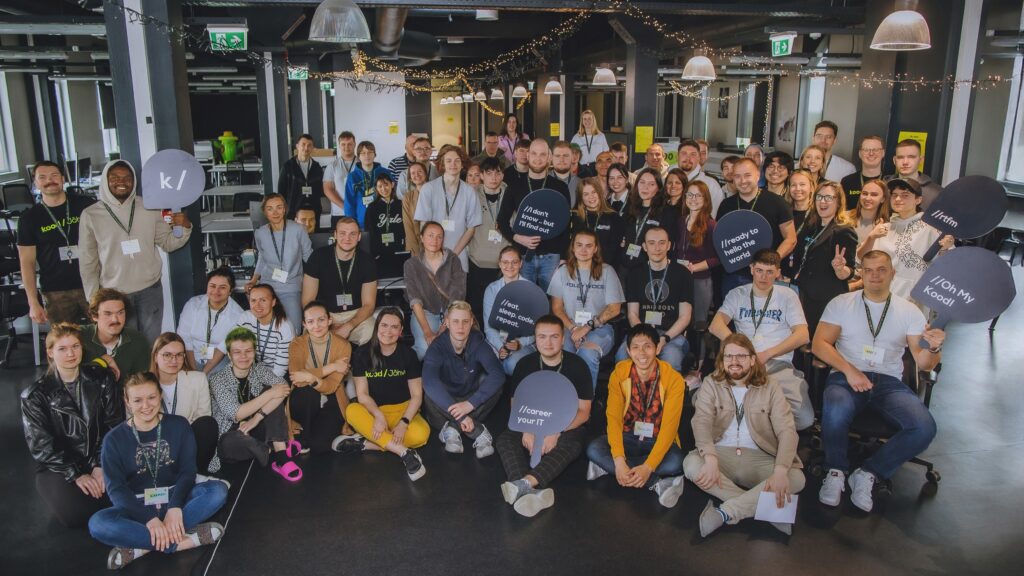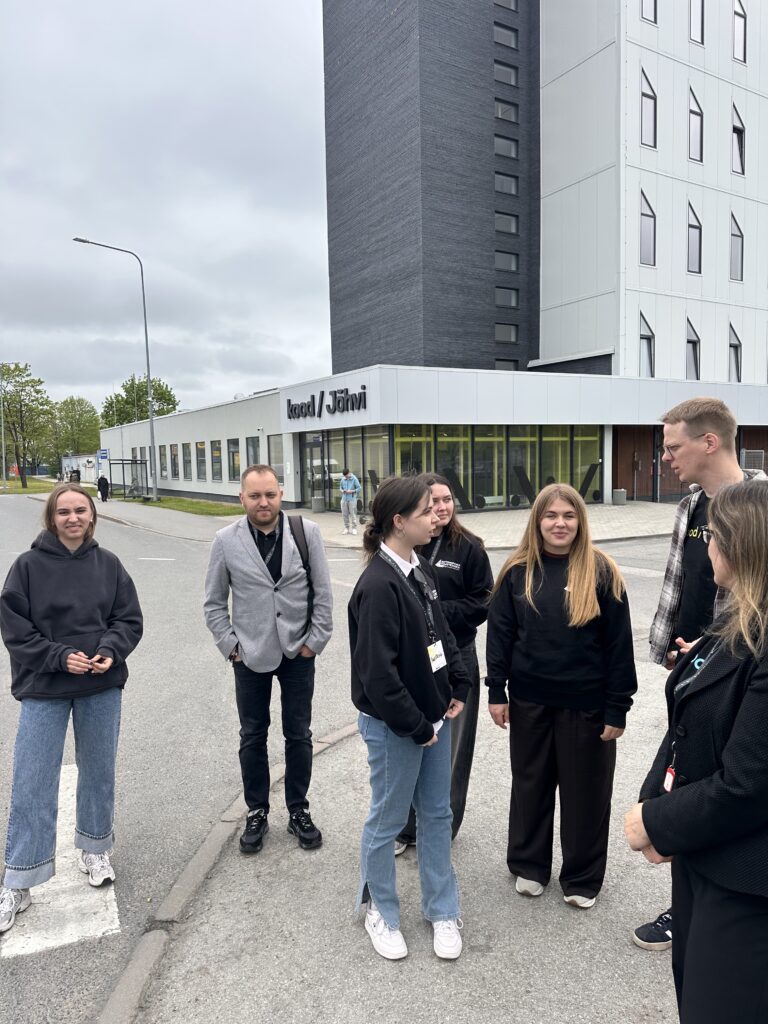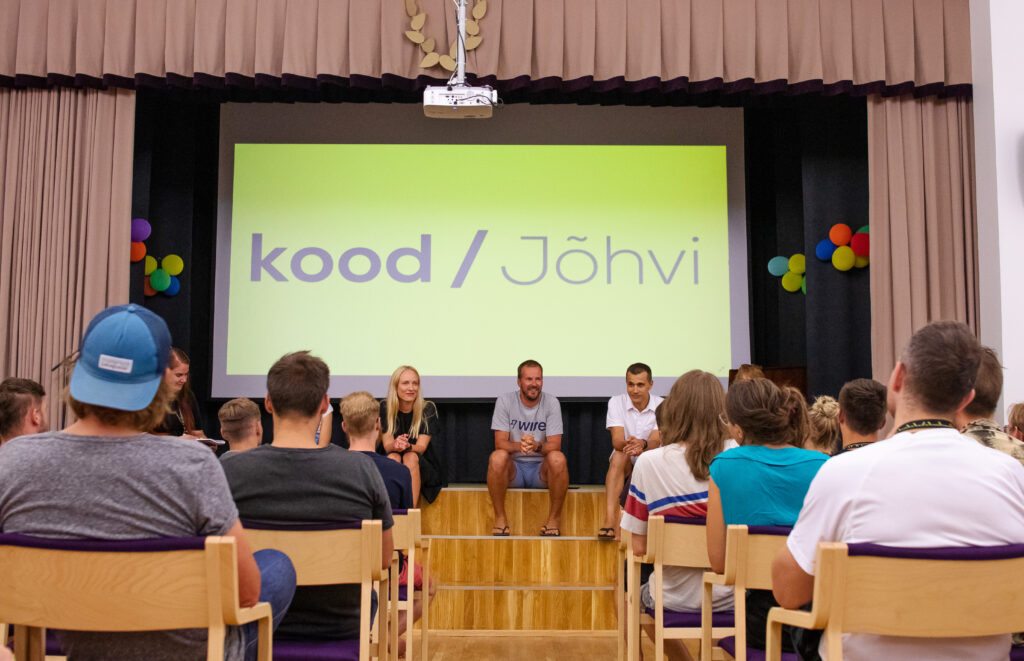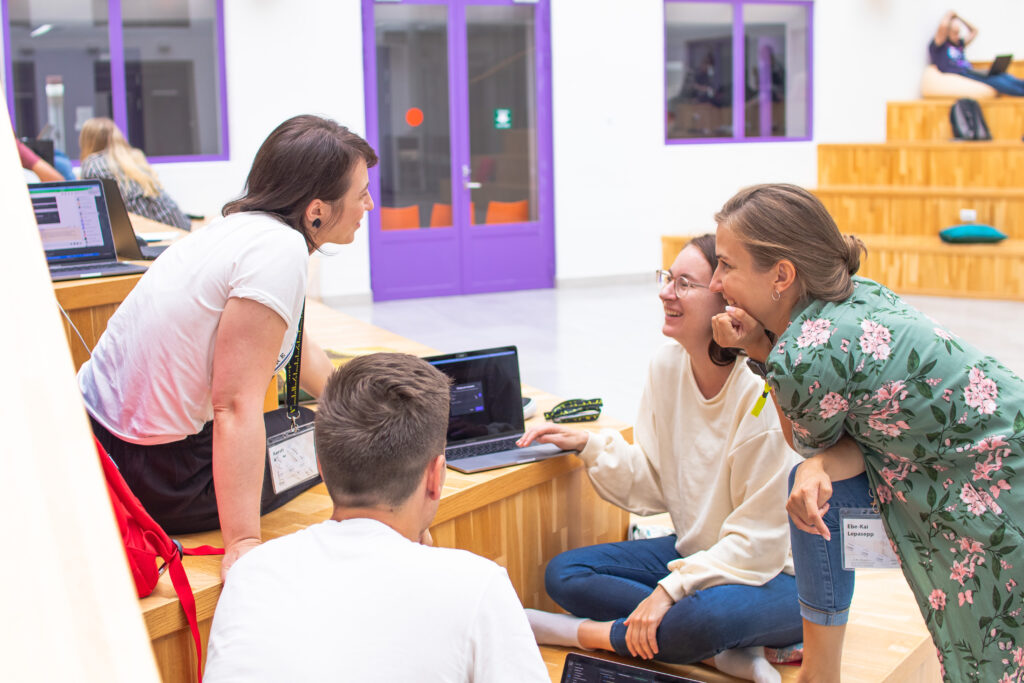Estonia’s boldest coding school, kood/Jõhvi, is going global – bringing its teacherless, self-directed model to Ukraine and Kenya in a bid to boost digital skills, build resilience, and empower a new generation of tech talent.
When Estonia’s radical programming school kood/Jõhvi launched in 2021 in the industrial northeastern town of Jõhvi, it swiftly gained recognition as an experiment in alternative education. Founded with the ethos “no teachers, no classes but 100% coding,” the school shunned lectures, exams and even formal instructors, choosing instead to place students at the centre of a peer-led, self-directed coding bootcamp.
Now, this disruptive model is going global. With the backing of the Estonian Centre for International Development (ESTDEV), kood is opening admissions in two new countries: Ukraine and Kenya. The initiative, part of Estonia’s development cooperation strategy, aims to empower adult learners with practical digital skills, offering a pathway into the global tech economy.
“These are just the first steps,” says Taavet Hinrikus, co-founder of kood and of fintech unicorn Wise. “In Estonia, we built kood to fast-track our tech talent. But in Ukraine and Kenya, we’re giving people the tools to shape their own lives and strengthen their communities.”

From Ida-Virumaa to Zhytomyr
In Ukraine, the project will operate as kood/Zhytomyr in partnership with Zhytomyr Polytechnic University. The first 100 students will follow a hybrid model combining online learning with on-site sessions – a necessity given the daily disruptions and security risks of war. The City of Tallinn has also stepped up, donating computers and monitors to ensure continuity.
“Ukraine remains our most important development cooperation partner,” says Margus Gering, ESTDEV’s head of cooperation for Ukraine. “By supporting projects like this, we bolster Ukraine’s digital skills ecosystem, particularly in vocational education – which is essential for nation-building.”
Ukrainian stakeholders recently visited Estonia to observe kood/Jõhvi’s entrance process, meeting with city and ESTDEV officials. Their visit echoed a sentiment voiced years ago by late Estonian president Lennart Meri: “The situation may be shit, but it’s our fertiliser for the future.”

Meanwhile in Kenya, kood/Nairobi will partner with GreatWell Training College to host a three-week “Selection Sprint” camp. Successful participants will enter a year-long distance programme delivered via kood’s cloud-based platform, enabling access from anywhere.
“We’re helping develop Kenya’s ICT expertise to match the demands of a fast-evolving labour market,” said Katrin Winter, ESTDEV’s regional lead for Africa. “Whether students launch local ventures or work remotely for European firms, including those in Estonia, this investment will pay dividends.”
Built by the Startup sector
The story of kood/Jõhvi began with two key insights. Investor Marek Kiisa was inspired by Israel’s success setting up coding schools in Palestinian territories and his son’s transformative experience in an accelerated learning programme. Kiisa pitched the idea to Martin Villig (Bolt) and Taavet Hinrikus, and soon a coalition of Estonia’s most prominent tech leaders joined the cause.
With €2.3 million in backing from both private investors and the government, and over 30 startup partners including Veriff, Pipedrive and Bolt, the school opened in Sillamäe before relocating to its permanent home in Jõhvi.

The school is free to attend and accepts anyone over 18 with basic education and English proficiency. Eighty percent of the work is team-based, encouraging a culture where every learner is also a teacher.
For some students, the freedom to self-direct is liberating. For others, it can be overwhelming.
Despite the challenges, results are promising. Of the six cohorts admitted in Estonia to date, 1,100 students have enrolled and over 300 have completed the programme. Nearly two-thirds are now working in the tech sector. The student body spans 30 nationalities, with an average age of 28, and includes divers, chefs, lawyers and school-leavers. Women make up 16 per cent.

In 2025, Estonia’s economic affairs ministry named kood one of the country’s top promoters of entrepreneurship. New campuses will open this autumn in the Estonian towns of Paide and Võru with municipal support.
As Estonia continues its climb to digital trailblazer, kood’s expansion into Ukraine and Kenya is more than a soft power move. Hinrikus is optimistic: “We’re not just exporting a school model. We’re exporting the belief that anyone, anywhere, can learn to code – and change their life.”

